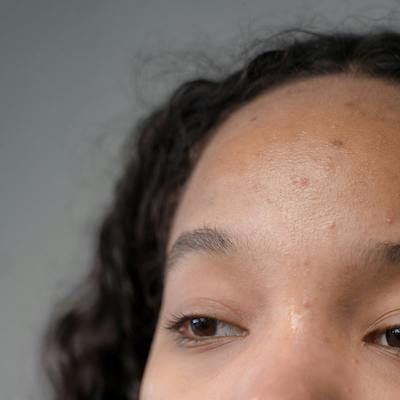Article
Bimekizumab Effective Treatment for Hidradenitis Suppurativa
Author(s):
Though investigators called for more research on the biologic, recent data showed patients treated with bimekizumab recorded improved skin pain when compared to placebo and adalimumab.

In a phase 2 clinical trial, investigators found clinically meaningful improvements in patients with the chronic inflammatory disease hidradenitis suppurativa after being administered the monoclonal antibody bimekizumab.
Investigators, led by Gregor B. E. Jemec, MD, Associate Professor at the University of Copenhagen, Consultant Dermatologist and Founding Chairman at Roskilde Hospital, Denmark called hidradenitis suppurativa a “debilitating” disease with a prevalence of 0.03%-1% and a mean age onset of 22 years.
Despite its prevalence and painful comorbidities few treatment options are available, with adalimumab being the only biologic therapy approved by the European Medicines Agency and the US Food and Drug Administration for the treatment of moderate to severe hidradenitis suppurativa.
Jemec and colleagues proposed that a dual-cytokine blockade involving bimekizumab could contribute to greater results in chronic tissue inflammation.
Bimekizumab had been known to inhibit interleukin (IL)17A and IL-17 and demonstrate rapid and significant improvements in dermatologic and rheumatologic disease activity. Additionally, clinical responses to the biologic in patients with psoriasis were demonstrated in earlier studies.
The investigators conducted a randomized, double-blind, phase 2 study in participants with moderate to severe hidradenitis suppurativa to assess the efficacy and safety of bimekizumab.
The Study
The clinical trial was conducted at various sites around the world including North America, Europe, and Asia Pacific regions, from September 22, 2017, to February 21, 2019.
This included a 2- to 4-week screening, 12-week treatment, and 20-week safety follow-up period after the final dose.
A total of 90 participants aged 18 to 70 years were enrolled and randomized at week 0 to bimekizumab (n= 46) and placebo (n= 22) or the adalimumab treatment (n= 22).
Depending on which group they were enrolled in, participants either received 320 mg of bimekizumab every 2 weeks (after a 640-mg loading dose at baseline), placebo weekly from week 4 (with initial doses at baseline and week 2 to main- tain blinding), or 40 mg of adalimumab weekly from week 4 (after an initial 160-mg loading dose at baseline and 80 mg at week 2).
The primary efficacy end point was the proportion of participants achieving the Hidradenitis Suppurativa Clinical Response (HiSCR), defined as a 50% or greater reduction from baseline in the total AN count.
The Results
Jemec and colleagues reported that at week 12, 46% of bimekizumab-treated participants achieved HiSCR75, while 32% achieved HiSCR90.
Additionally, a higher proportion of bimekizumab-treated participants reported greater improvements in skin pain at week 12 and no impact of disease on their quality of life compared to the placebo group.
Though adalimumab-treated participants did show improvements in IHS4 and skin pain, they were either numerically similar or smaller than the bimekizumab group.
Treatment emergent adverse events (TEAEs) such as infections or skin infestations, were similar across all groups.
Overall, bimekizumab showed clinically meaningful and consistent improvements over the placebo group, with promising safety and efficacy results.
Though investigators considered bimekizumab to have potential to be a viable treatment option for the treatment of hidradenitis suppurativa in patients, further research was recommended.
“The inflammatory burden of the disease and current pharmacologic treatment outcomes suggest that an intensive dosing regimen (dose level and/or frequency) may be needed for optimal treatment,” the team wrote. “The efficacy and safety findings in this study warrant confirmation with larger phase 3 studies.”
The study, “Efficacy and Safety of Bimekizumab in Moderate to Severe Hidradenitis Suppurativa A Phase 2, Double-blind, Placebo-Controlled Randomized Clinical Trial,” was published online in JAMA Dermatology.




